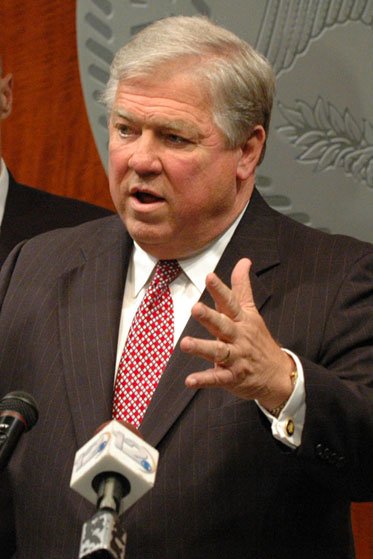Barbour revealed this week that "a junior staff person" working for the state uncovered a budget correction that allotted the state a one-time payment of $92 million from the federal government. The payment means the long battle to fill the $90 million Medicaid shortfall is suddenly over for the 2009 budget.
This out-of-the-hat solution arrives after a months-long fight between House Democrats and Barbour, nursing homes and Barbour, and about 40 hospitals and Barbour over the governor's preference to fill the hole with a tax on medical facilities that treat Medicaid recipients.
Hospitals were still arguing against Barbour's plan last month, saying Barbour's new tax would likely be passed down to patients in the form of new fees, and that the Medicaid disbursements would be distributed unevenly, forcing some hospitals to close their doors.
Hinds County Chancery Court Judge William Singletary ruled last month that he was holding off on hospitals' request to halt Barbour's plan, but Jackson attorney George Ritter, who represented the hospitals in the lawsuit, said he would have no choice but to appeal to a judicial review if the court eventually OK'd the governor's plan.
Hospitals were willing to battle Barbour all the way to the state Supreme Courta judicial body containing many judges whose campaigns were financed by doctors and medical PAC to beat down plaintiffs' lawsuits. There's no guarantee that the court, which has been so loyal to Barbour over the last few months, would faithfully tag along behind him this time around.
Democrats in the Legislature wanted the hole filled with a $1 tobacco tax. Later, they favored a 50-cent tobacco tax/hospital tax plan hybrid, though Barbour would have none of it, and pushed yet another $61,000 special session to force through his hospital tax, rather than letting House Republicans allow a hybrid funding measure out of the House.
Barbour said staff discovered the $92 million funding irregularity in June, but told no one as the court case and the special session progressed, saying he didn't think it was fair to build up people's hopes "until we know we'll get the help and what amount it will be."
This fight isn't over, however. The solution for 2009 is behind us, but 2010 awaits, with the same $90 million shortfall hunkered down like a toad in a hole. The same opponents that Barbour thought he could wait out this year will be demanding his cooperation next year.
Governor Barbour, the state needs a stable plan to repeatedly fill the hole, not an annual gift of one-time money. Government isn't just about you. It's about cooperation. Be prepared to cooperate next time, governor.



Comments
Use the comment form below to begin a discussion about this content.